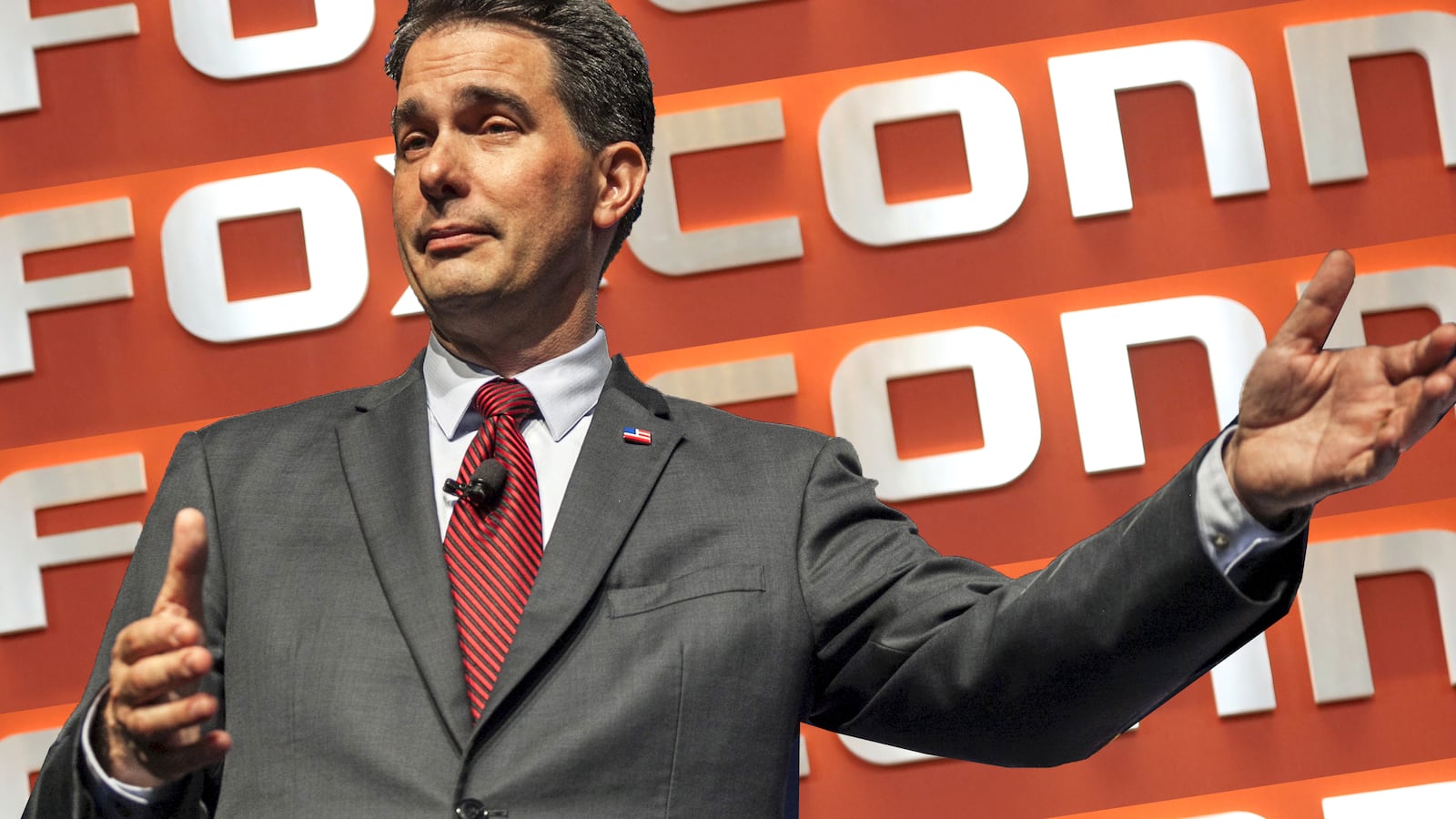Wisconsin Governor and one-time presidential hopeful Scott Walker may have violated his state’s constitution with a law that would give the technology company Foxconn special treatments in the courts, legal analysts say.
On Monday, Walker signed a law handing over nearly $3 billion in state funds to the Taiwanese company Foxconn, in exchange for the company’s pledge to invest up to $10 billion in a Wisconsin factory. The deal also gives Foxconn a $150 million tax break on construction equipment, allows the company to build its factory in protected wetlands without an environmental impact study, and most troubling for legal experts, forces the state’s more conservative higher courts to weigh in on any ruling against the company.
Walker has heralded the Foxconn factory, which will produce LCD screens, as a major win for Wisconsin workers.
“Foxconn is bringing 13,000 high-tech jobs to Wisconsin—the biggest jobs announcement in our state’s history!” he tweeted in July. Foxconn’s official statement was more muted, clarifying that the factory will “create 3,000 jobs with the potential to grow to 13,000 new jobs.”
Still, Walker’s government heaped incentives on the company, agreeing on Monday to pay Foxconn nearly $3 billion, in addition to sizable tax breaks, and permission to build the factory in wetlands without an environmental impact study. Environmental groups were quick to criticize the lack of an impact study, leading to speculation that they would launch a legal challenge against the planned factory.
But a lawsuit against Foxconn will be difficult under the new provisions Walker signed into law on Monday.
Under the new law, all appeals in Foxconn-related cases will now have a fast track to the state’s Supreme Court, a majority-conservative body, the Milwaukee Journal-Sentinel previously reported. The new law also puts a stay on all rulings from lower courts until a higher court weighs in, and requires higher courts to accept appeals on orders from lower courts, even if the order is not final. The provisions’ combined effects could stonewall legal challenges on the Foxconn factory, or send them to more conservative courts.
Those new laws might conflict with Wisconsin’s constitution, analysts from Wisconsin’s nonpartisan legislative council announced on Tuesday. The group found that, in bypassing lower courts, Walker’s law might violate the courts’ independence.
"A court could hold that the provision is unconstitutional if it finds that this provision violates the judiciary's independence in the fulfillment of its constitutional responsibilities," the legislative council wrote.
In fast-tracking all Foxconn-related cases to higher courts, Walker might have overstepped the powers of his office, the nonpartisan group suggested.
“It could be argued,” the group wrote, that “requiring the Supreme Court to give preference to certifications in certain cases would unduly burden the judiciary and more specifically the Supreme Court.”






